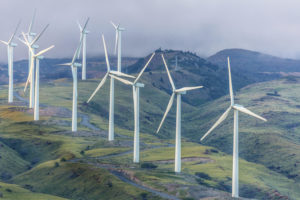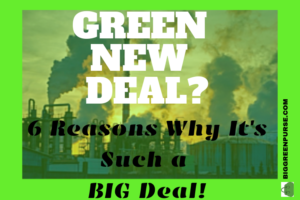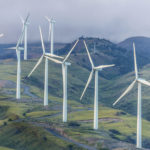 President Obama tackled energy in his State of the Union address on Wednesday night, but not in the way that many (including myself) had hoped.
President Obama tackled energy in his State of the Union address on Wednesday night, but not in the way that many (including myself) had hoped.
Not only did Mr. Obama push for “building a new generation of safe, clean nuclear power plants in this country,” but he endorsed “opening new offshore areas for oil and gas development” and “continued investment in...clean coal technologies.”
Does the President actually believe offshore oil drilling makes sense and that coal and nuclear can be safe, healthy and non-polluting? Or, as the country’s uber politician, is he trying to maintain a balancing act in order to avoid alienating members of Congress who are beholden to the fossil fuel and nuclear industries for their campaign contributions?
If it’s the latter, we should all remind the President of his campaign promise to rid the nation of “politics as usual.” If it’s the former, President Obama’s science, environmental and health advisors need to make a beeline to the Oval Office so they can brief their boss on the industries he’s touting. Why?
* Clean coal and nuclear are myths, the products of aggressive industry public relations far more than reality. Says analyst Richard Coniff, “Clean” is not a word that normally leaps to mind for a commodity some spoilsports associate with … acid rain, black lung, lung cancer, asthma, mercury contamination, and, of course, global warming. Even if the carbon is captured and sequestered or impurities are “scrubbed” away, the pollutants that result from burning coal never truly disappear.”
* The very act of mining coal destroys the environment. Mountaintop removal mining is decimating both the natural and human landscape of Appalachia, for example.
* Offshore oil drilling pollutes the oceans, threatens marine animals and plants, and trashes beaches and coastlines.
As for nuclear energy, I have a hard time imagining any scenario that can lump “radioactive waste” and “clean” in the same sentence. There’s a reason no state wants to become a repository for the waste from nuclear power plants: they can’t guarantee it won’t eventually make its way into our air, water, and soil — or be stolen by terrorists and converted into a bomb.
Now, to be fair, the president did strongly endorse renewable energy:
“We know the country that harnesses the power of clean, renewable energy will lead the 21st century,” he said, noting that “Thanks to our recovery plan, we will double this nation’s supply of renewable energy in the next three years.”
I applaud the Administration’s commitment to “put Americans to work making our homes and buildings more efficient so that we can save billions of dollars on our energy bill.” Likewise, I support his decision to “invest fifteen billion dollars a year to develop technologies like wind power and solar power… and more fuel-efficient cars and trucks built right here in America.”
But rather than link these winning strategies to losers like coal, oil and nuclear, why not expand his vision for our future to include cost-effective and non-polluting options like mass transit, telecommuting, and stricter building standards to reduce energy demand from space heating and lighting?
If we want an energy future we can believe in, that future cannot continue to depend on fossil fuels and nuclear energy.
President Obama said it best: “If we confront without fear the challenges of our time and summon that enduring spirit of an America that does not quit, then someday years from now our children can tell their children that this was the time when we performed, in the words that are carved into this very chamber, “something worthy to be remembered.”
















6 thoughts on ““Clean” Coal and Nukes Should Not be Part of Obama’s Energy Future – or Ours.”
Hi – I got the link to this article from Beth at Fake Plastic Fish and took a read. I am all for phasing out coal plants because of pollution of the environment and for the personal heath of people who live near mining sites and burning stations. I used to agree that nuclear wasn’t an answer, but read a book (which I’ve mentioned to Beth before too) that really changed my perspective on quite a few issues in the environmental movement. Steward Brand is the author of Whole Earth Discipline: An Ecopragmatist Manifesto and he took a look back over the things he supported and was against after a long career in science. He said the more he spoke with people who are actually scientists who know the most that he saw nuclear as being a real viable option that is a much better alternative to coal and he included a lot of interesting statisics. For example the average person in America in the course of their life will produce just 12 oz of nuclear waste, just one soda can to power your entire life. I found that amazing. Also new models for nuclear plants mean that the plants are built right near the source of the uranium and when the source is gone, the plant itself becomes the holding ground for the waste left and can be sealed away – the longer the waste sits the less dangerous it becomes each year. Background radition is normal on earth and some sites are naturally more radioactive and some radioactivity has shown some health benefits. Other interesting points he made about clean energy were the amount of things that have to be produced to make it work – acres and acres and acres of solar and wind fields that also have impact on the environment because they are not as effecient as other methods and the energy generated during high wind and full sun doesn’t have a long term way to be stored. We definitely need to support these areas of research to see if a way can be made to make this more viable and less expensive to individuals who could use it off set overall usage. There is a website that will help communities who want to buy solar packages get discounts http://about.1bog.org/ for those interested in that route. Sorry for the novel – but it’s something that I’ve been looking into recently.
Thank you for your very thoughtful comment. In my mind, it’s not coal OR nuclear power, but neither coal nor nukes. I believe we should be developing small, locally based, renewably powered energy systems that meet individual community needs for fuel rather than regional energy demands. The statistic about “one can of nuclear waste per peson” is fascinating – but there are over 300 million people in the U.S. 300 million cans of waste don’t look so appealing, never mind how much waste might be generated by factories and commercial facilities drawing from nuclear generation. It seems narrow minded and unimaginative to think our only options are coal or nuclear. Let’s invest the same amount of money in alternative technologies and I bet we develop safer, cheaper power sources that minimize environmental impact.
I didn’t take it that it was nuclear or coal, but rather bringing up points about nuclear as a viable option until something more sustainable is in place. Power produced locally is better because the enegery has less distance to travel. However, wind and solar locally won’t provide enough power for the entire country in local ways because of power storage and creation of power issues with wind/solar that I mentioned. Wind and solar power are not at zero impact either because of the huge amount of space required for them to produce large amounts of power. And to make another comparison for energy waste created, consider how many products must be manufactured for solar panels and windmills. I’d be excited to any new developments that had better options and agree that more money needs to by spent for research.
A link to what is happening in Europe for a green power grid that is in the works.
http://edition.cnn.com/2010/TECH/science/01/26/eco.energy.grid/index.html
The use of sophisticated software systems for coal mining (thermal coal, steam coal and metallurgical coal) that is mostly burnt for power generation and steel production and adds to the greenhouse effect is valid for western countries who may allocate resources and funds to alternative and more greener sources of power. Some of the alternatives may be “safer” than the traditional mines. Unfortunately, coal reports and coal statistics show developing economies are more likely to increase their use of thermal coal & metallurgical coal in coming years because of its affordability and to meet increasing demands for electricity and steel. Whether they will embrace and utilise sophisticated software systems that no doubt add to the cost of production is yet to be seen. Cherry of http://www.coalportal.com
Yes, it’s unfortunate that we will see more use of coal globally in the foreseeable future. Meanwhile, the potential for energy conservation to reduce overall energy demand is not being exploited nearly enough. We would need far less energy – from coal, nuclear, oil, and even solar – if we focused much more on efficiency and conservation. Thanks for your comment.